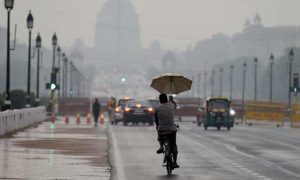40 days of pent-up demand for non-essentials released on Monday brought back some e-commerce action on the first day of the relaxed lockdown guidelines.
Following the Ministry of Home Affairs directive that allowed e-commerce companies including Amazon, Snapdeal, Flipkart, others to resume services of non-essential goods in green and orange zones, the marketplaces reported ‘thousands of sellers’ receiving orders for such goods.
The majority of orders received belonged to apparel, electronics, home and household product categories.
“Baby clothes and electrical appliances have witnessed maximum pick-up on Amazon. Volume is close to pre-Covid days which included red zones too while sellers are forced to ramp up faster than they expected,” a source aware of the first-day volume activity at Amazon told Financial Express Online.
Amazon, which has over 5.5 lakh sellers of which most are small businesses, had recently announced a Partner Support Fund to offer a one-time disbursement to Covid-hit small and midsize package delivery businesses and ‘select’ transportation partners.
“Thousands of sellers have started receiving orders for the first time since the lockdown began in March. We are hopeful that this will help jumpstart the livelihood of many small sellers and their workforce. We urge the government to allow an expanded list of priority products in the red zone as well,” an Amazon spokesperson said in a statement.
Rural and semi-urban focused e-commerce marketplace for value-conscious buyers Snapdeal also reported “thousands of our sellers received orders” on Monday. The company expected “80-90 per cent of our sellers in the orange and green zones to become active over the course of this week,” a Snapdeal spokesperson said. Over 40 per cent of its orders under relaxed guidelines were from orange zone while 35 per cent came from the green zone.
“Volume grew multi-fold from yesterday (Sunday) for Snapdeal but not yet close to pre-Covid level. The order volumes are expected to grow steadily as more sellers become operational on the company’s marketplace and more areas become serviceable,” a person close to the company told Financial Express Online.
The top categories attracting orders on Snapdeal were home including kitchen appliances like mixers, glasses, pressure cookers, cutlery, water bottles etc., the spokesperson added.
Apparel was another category including summer clothes such as t-shirts, Bermuda shorts, skirts, crop tops etc. and casual wear like cotton night shorts, top and pyjama sets etc that figured high on shopping lists. Electronic accessories like mobile phone charges, earphones, data cables and extension cords also received orders.
“This is likely an expression of pent-up demand during the lockdown. While basics were made available, albeit, with scarcity, a lot of necessity and aspiration based shopping was suppressed. These segments were expected to be overweight just post-recovery, and their share of the overall basket will likely stabilize over time,” Utkarsh Sinha, Managing Director at advisory firm Bexley advisors told Financial Express Online.
Importantly, the delivery of goods ordered on Monday could take up to 14 days depending upon the product.
While top categories for Flipkart couldn’t be ascertained and the company also declined to comment on it by the time of filing this report, it stressed on use of technology for efficient process management. “Our industry-first network design that leverages technology to smartly locate warehouses, sortation centres and delivery hubs have helped us maximise speed and selection,” a Flipkart spokesperson said in a statement. The company prioritized the areas and regions as per essential delivery guidelines by the government before scaling services to other across cities.
Following the current Covid situation, there will most certainly be a lingering shift in consumer behaviour and a net addition to online retail volumes. This is likely because consumers — who were offline only thus far — have now experienced buying and paying for goods (particularly household necessities) online.
“This behaviour is easily extendible to other categories and to other platforms. Those who were holdouts and tried BigBasket for the first time now, will likely be more open to trying Amazon or Flipkart too,” added Sinha.





































